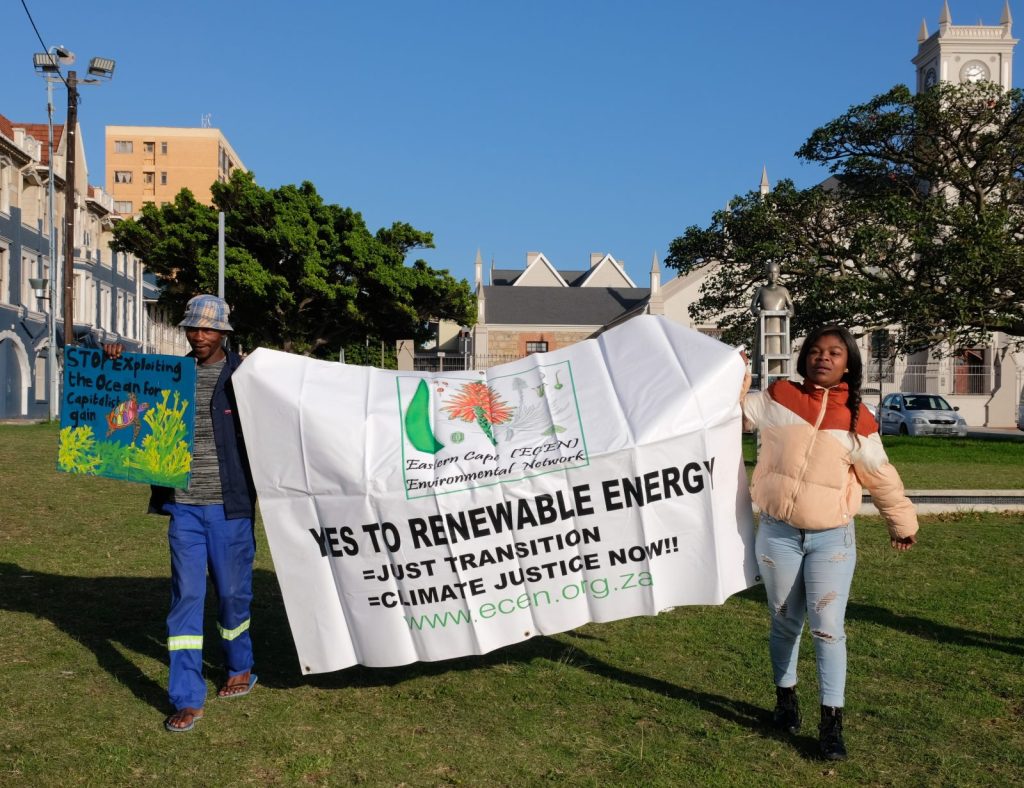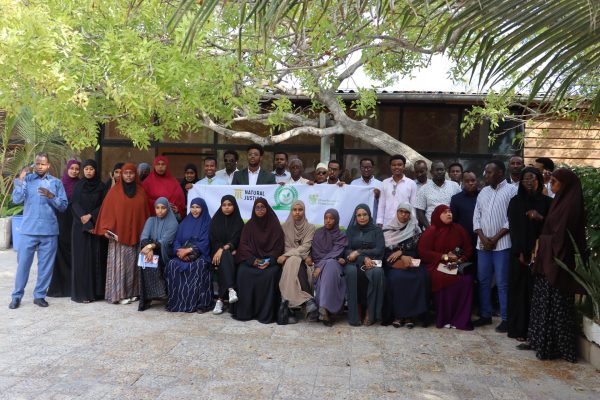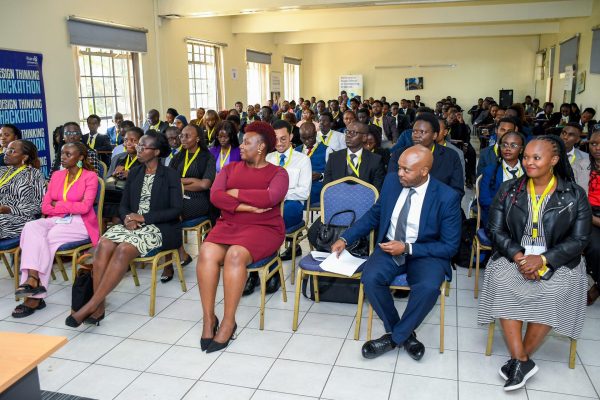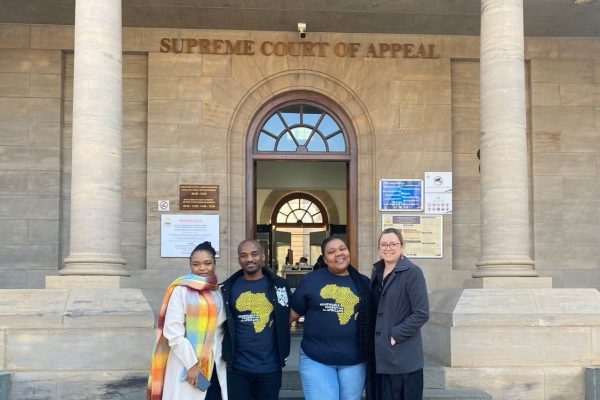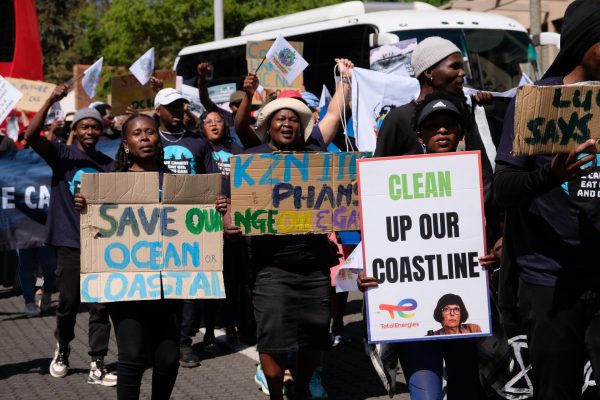The South African government’s bold move of signing the Climate Change Act 2024 into law, burns bright like an Olympic torch for climate justice. However, lurking under the cover of loadshedding are bills waiting to be signed into law; bills that threaten the objectives of the new Act – dimming its glow on the path to a just energy transition.
The Climate Change Act is a victory and significant step to ensure South Africa is fulfilling its climate action obligations under the Paris Accords and to ensure citizens realise their right to a clean, healthy and sustainable environment, which has been recognised internationally and under section 24 of the Constitution. Although overdue and imperfect, the Act clearly acknowledges that “climate change represents an urgent threat to human societies and the planet”.
Having this law in place to mitigate and address climate change, means the government is taking the global crisis seriously and recognises South Africa’s contribution to and vulnerability within this emergency. The country is being slammed with extreme weather events, costing lives and money, so there is no more denying the existential threat facing those living there. The Act is also crucial for advancing environmental democracy – it can and should be used by all South Africans to hold our government and big business accountable to their obligations in the context of multiple planetary crises.
What’s also positive is the Presidential Climate Commission (PCC), under the Act, has been given state powers, strengthening its institutional mandate, emboldening it with political backing and legal weight to drive the implementation of Act. Moreover, the Department of Forestry, Fisheries and the Environment (DFFE), often subservient to the ambitions of Department of Mineral Resources and Energy (DMRE), has greater powers in that it is tasked with developing emissions targets for various sectors and partners, including energy and electricity.
Shortfalls of the Climate Change Act
Regretfully, there is one instance where the Act falls short: enforcement of carbon budgets and climate financing.
The mandatory carbon budgets contained within the Act are a critical step, but without punitive enforcement, the Act allows companies to get away with overshooting their carbon budgets. There is absolutely no room for that – we are living in a climate emergency and no amount of additional carbon tax is enough when climate induced loss and damage is wreaking havoc for countries, including South Africa, increasing debt and resulting in life and death consequences for people living on the frontlines of this crisis.
Moreover, a funding mechanism for the Act is only vaguely discussed. Without finance for the Act, there will be no climate action. Funding for implementation, monitoring, adaptation, and resilience strategies for all sectors of society – from housing to energy to agriculture – will be the difference between an Act that gathers dust with severe impacts on citizens’ human rights and our economy, and legislation that advances a climate resilient and climate just future for South Africans.
Bills conflicting with the Climate Change Act
With the ink having only just dried following the signing of the Act, there are already questionable differences between measures being pursued in the energy sector, and those stated in the Climate Change Act.
Energy is responsible for most of the climate change-causing greenhouse gas emissions, mostly from the burning of fossil fuels. South Africa’s economy and energy system is one of the most coal-dependent in the world and features a large stock of high-carbon infrastructure, particularly in the energy sector. South Africa is ranked as the highest emitter of carbon in Africa and the top 15 in the world.
In 2021, coal was responsible for at least 83% of total carbon dioxide emissions from fuel combustion nationally. The carbon budgets and punitive enforcement are, therefore, key in changing these statistics.
The controversial Upstream Petroleum Resources Development Bill (UPRD Bill) opened for public comment last year by the DMRE, remains before the President for signature. The Bill aims to accelerate the exploration and production of the nation’s petroleum resources, flying in the face of the Climate Change Act’s objective to reduce greenhouse gas emissions.
The UPRD Bill also mentions nothing about climate change, nor the cumulative impacts that acceleration of petroleum resource exploitation will have on our emissions trajectory, or on frontline communities impacted by exploitation. The affirmation in the UPRD Bill of the State’s obligation to protect the environment remains exactly that: a weak affirmation.
A Gas Masterplan was published in April 2024. This, together with the Hydraulic Fracturing Regulations and the Minimum Information Requirements for Hydraulic Fracturing for private actors, first published in July 2022, are now under revision again in July 2024, through the DFFE.
The inclination towards gas to ‘complement’ renewable energy is both disappointing and obstructive to the globally agreed urgency to make deep and rapid cuts to fossil fuel emissions. The International Energy Agency has advocated strongly that the only way to meet net zero carbon emission targets by 2050 is to ensure a rapid decline of oil and gas. This means no new oil and gas development beyond those already in existence.
Our energy sector, the one largely responsible for high carbon emissions, should develop and implement policies aligned to the objectives of the Climate Change Act – to mitigate climate change and advance a just energy transition, that puts citizens, workers and their environment first.
To avoid the Climate Change Act’s purpose and successful implementation being wholly undercut by the contradictory policies and legislation coming out of the energy sector, the government and the DMRE must urgently reconcile our energy needs and the need to mitigate a burning planet. This reconciliation demands the political will to make policy choices that truly address the climate emergency and biodiversity crises, and that guarantee energy justice for all South Africans, while safeguarding their human rights and those of future generations.
Jacqueline Rukanda is the Programme Manager of the Affirming Rights Programme and Katherine Robinson is the Head of Campaigns and Communications at Natural Justice.

